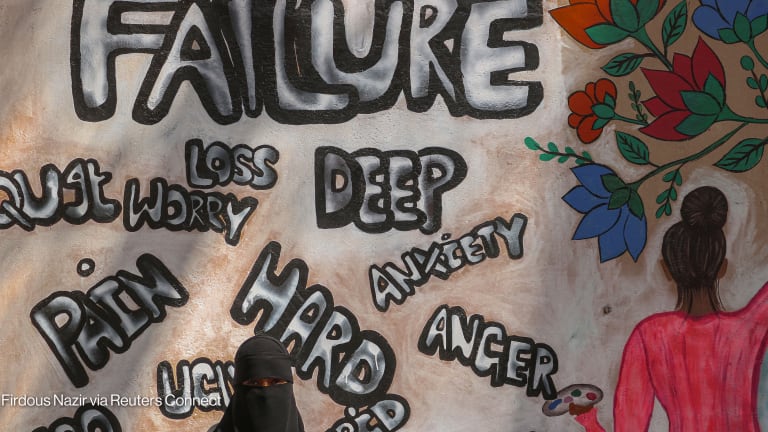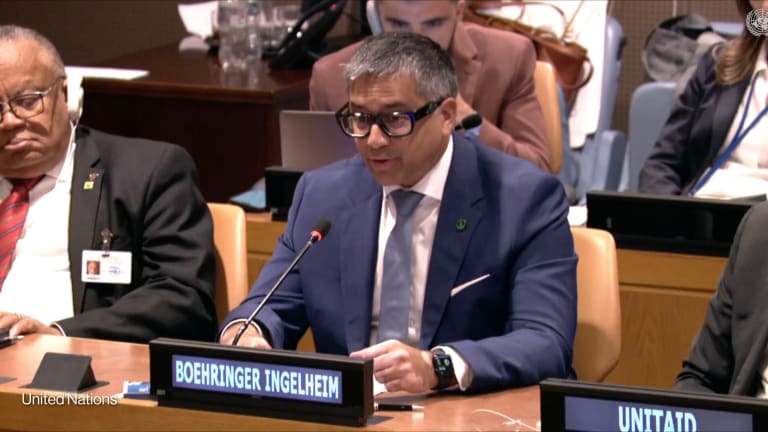
This week, we are excited to take part in the World Economic Forum Annual Meeting in Davos. The forum provides an unmatched venue for building connections with existing and potential partners, civic society, business leaders, and politicians who, together, can drive the direction of future scientific research, investment, and policy.
In past years, WEF has been a venue for engaging the public’s attention and global action on important public health challenges, such as infectious diseases, antimicrobial resistance, and pandemic preparedness, including the launch of the Coalition for Epidemic Preparedness Innovations in 2017 and Global Alliance for Vaccine Initiative in 2000.
Today, we see an urgent need to tackle the growing burden of noncommunicable diseases such as diabetes, heart disease, and cancer. But there is another health issue that is rarely discussed, hidden in the shadows, and stigmatized — but one that ruins lives and damages families, communities, and society: It’s the growing global challenge of mental health.
Worldwide, an estimated 1 billion suffer from anxiety, 300 million people are affected by depression, 60 million suffer from bipolar affective disorder, about 21 million are affected by schizophrenia or other severe psychoses, and nearly 50 million people have dementia, a number that is expected to grow to 152 million in 2050 — a 204 percent increase. In addition, challenges such as lack of resources and trained health care providers, inaccurate assessment, and social stigma compound the problem of effectively addressing the mental health epidemic.
While this urgent need is escalating, the science around mental health and brain diseases remains complex, and public and private funding for neuroscience research does not match the need nor the investment in other disease areas.
We are making significant advances in neuroscience and increasing understanding of the brain and brain disorders. But the growing prevalence of mental illness, particularly in young people — combined with rising rates of Alzheimer’s and gaps in research and care — have the potential to create a global crisis.
The solution is disruptive innovation and international, open collaboration. And we don’t have to start from scratch. Science and technology offer us unprecedented opportunities. To take advantage of the opportunities, we must work together to solve some key challenges.
First is the need for an integrated approach, combining risk assessment and early diagnosis, disease interception, and treatment, as well as supportive interventions.
Second, strong public-private partnerships between academia, biotech, industry, government, regulators, patient groups, and civic society are key to spur progress in areas that include detecting at-risk individuals, harnessing “big data” and real-world evidence, developing innovative approaches to clinical trial design and drug development, as well as novel regulatory pathways to accelerate innovation.
Finally, we must continue exploring innovative financing mechanisms to spur investment. With a global funding mechanism, we can work collaboratively, across borders and disciplines, to develop a platform and comprehensive approach to reduce the time, cost, and risk of developing and evaluating treatments for mental illness.
We have enormous opportunity to harness the advances that today’s science and technology offer to bring forward game-changing innovation in mental health prevention, treatment, and care. We are committed to focusing the world’s attention on this critical need and working together to revolutionize the way we think about, study, and approach the development of solutions so that we can change the trajectory of mental illness around the world.









